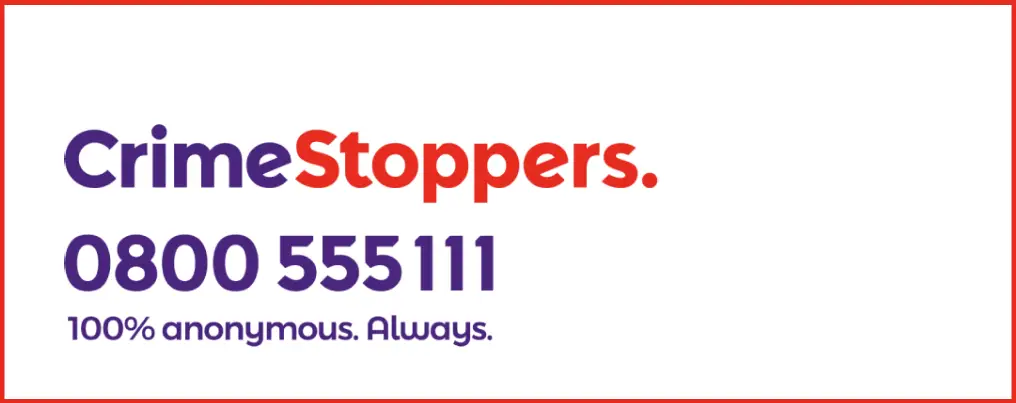Launched in 1988 by Lord Ashcroft, Crimestoppers UK was founded in the wake of the murder of PC Keith Blakelock during the Tottenham riots. Initially called the Community Action Trust, the charity started as a partnership between the business community, the police and the media.
The purpose was, and still is, to encourage members of the public with information on crime to come forward anonymously, without the fear of their identity ever being revealed.
No comeback
It works. Since its launch, Crimestoppers UK has received more than 2.2 million pieces of valuable information which has led to over 151,000 arrests, more than £139 million of stolen goods being recovered and more than £367 million of drugs being seized.
Every day, over 1,500 people contact Crimestoppers online or via the phone, leading to over 500 high-quality reports being passed on to police and other law enforcement agencies. The information they receive helps catch fugitives, stops planned violence, ensures victims of domestic and child abuse are safeguarded, prevents bomb and acid attacks, and helps victims and their families secure justice. Independent charity
Independent charity
It is the charity’s independence from the police that is a unique selling point. Crimestoppers is trusted, and the public are confident to speak up anonymously through them. This allows the charity to help those individuals and communities who are reluctant to speak directly to the authorities, including those who fear retaliation.
The charity works closely with police forces across the UK and law enforcement organisations, including the National Crime Agency (NCA), Border Force, HMRC and others.
Crimestoppers runs national and regional campaigns profiling crimes, including so-called hidden harms, by highlighting the `signs to spot’. They promote the charity’s unique promise of taking crime information with no comeback. New and often crucial crime information is received as a result of these initiatives.
Supporting unsolved cases
Rewards are regularly offered to support police investigations when they face a wall of silence. Whilst the overwhelming majority of people who contact Crimestoppers never ask for a reward, Crimestoppers rewards and appeals help generate much-needed publicity for unsolved or difficult ongoing investigations.
The organisation’s regional staff and network of more than 300 volunteers are vital to the success of Crimestoppers, as they engage with local communities and amplify the message that people have options when it comes to speaking up about crime.
Most Wanted
In 2005, Crimestoppers launched Most Wanted, an online gallery allowing the public to view photographs and read descriptions of those wanted by law enforcement in their local area. Since the launch, more than 4,800 individuals featured on Most Wanted have been arrested and charged.
The Most Wanted section remains one of the most visited on the Crimestoppers website.
Fearless youth service
Another milestone was the launch of Fearless in 2010, which is the charity’s youth service. Fearless works to empower young people to make informed decisions about reporting crime. The website www.fearless.org allows young people to access non-judgemental information and advice about crime and criminality, and also offers a safe place to give information completely anonymously about crime. In addition to our website, Fearless also runs workshops in schools and for community youth groups, as well as providing training to youth professionals nationally.
International Most Wanted campaigns
Crimestoppers has also been at the forefront of finding fugitives from the UK who are on the run, not only here but also abroad.
Working with the NCA, Crimestoppers has run a series of international campaigns to hunt down those who are hiding abroad. Most recently, in January 2022, we launched a new appeal to trace and bring to justice 12 of the UK’s most wanted fugitives, believed to be hiding in Spain and the Canary Islands.
The list included those wanted for crimes such as murder, large-scale drugs trafficking and supplying firearms and ammunition. Within days, a number of fugitives had been caught with more in the months that followed, showing the benefit of the charity working closely with partner organsations like the NCA.
Further information
Lord Ashcroft continues to chair the Board of Trustees of Crimestoppers and to donate funds to the charity.
If you are interested in becoming a Crimestoppers volunteer, visit the volunteering section of the charity’s website.
If you would like to pass on information about crime anonymously, you can contact Crimestoppers on freephone 0800 555 111 or via the charity’s website.


